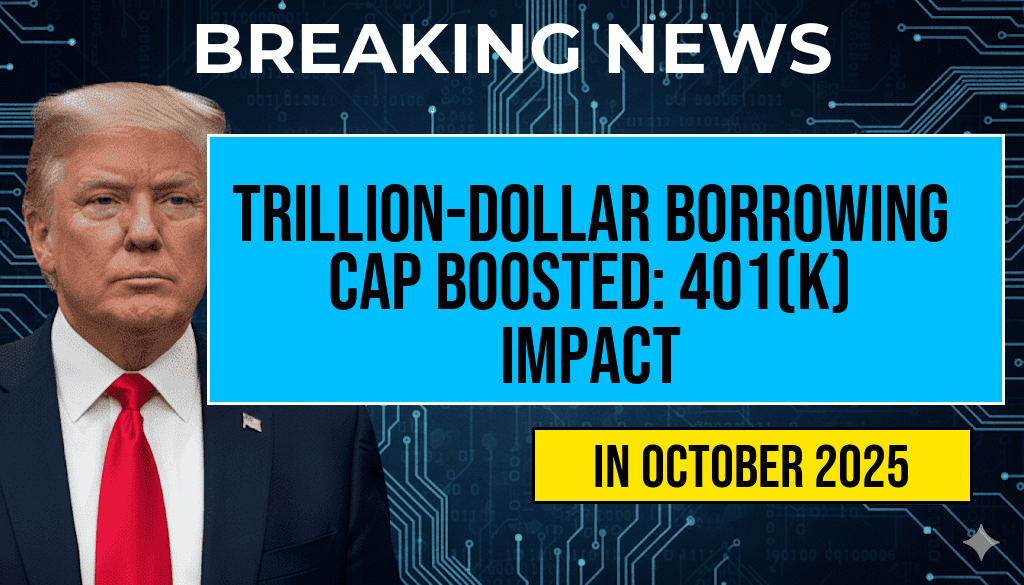President Donald Trump has officially signed a sweeping $3.4 trillion legislative package that significantly expands federal spending and increases the national debt by approximately $4 trillion. The legislation, described as a comprehensive economic and infrastructure measure, aims to fund a wide range of initiatives including infrastructure upgrades, healthcare, and social programs. Despite the sizable debt increase, the bill notably includes a provision affirming that tips remain untaxed, a key point for service industry workers. The signing marks a major policy shift with implications for the U.S. economy, federal debt levels, and legislative priorities moving forward.
Key Provisions of the Mega-Bill
The legislation, officially titled the American Economic Recovery and Infrastructure Act of 2024, encompasses a broad array of initiatives aimed at stimulating economic growth and modernizing infrastructure. Highlights include:
- $1.2 trillion allocated for infrastructure projects nationwide, targeting roads, bridges, public transit, and broadband expansion.
- Enhanced funding for healthcare programs, including increased support for Medicaid and COVID-19 mitigation efforts.
- Significant investments in renewable energy and climate resilience, emphasizing clean energy technologies and environmental protection.
- Funding for education, with a focus on expanding access and upgrading school facilities.
- Support for small businesses through grants and loan programs to foster entrepreneurship and job creation.
Debt Impact and Fiscal Concerns
Rising National Debt
| Current Debt (2024) | Additional Debt from Bill | Total Post-Implementation |
|---|---|---|
| $32.8 trillion | $4 trillion | $36.8 trillion |
The bill’s approval results in an estimated increase of about $4 trillion in the national debt, raising concerns among fiscal conservatives and economic analysts. Critics argue that such a surge could exacerbate inflationary pressures and reduce fiscal flexibility, especially in the context of ongoing federal commitments and interest obligations. Supporters contend that the investments are necessary for long-term economic growth and competitiveness, emphasizing that infrastructure improvements and social programs can stimulate productivity and consumer spending.
Tax Policy and Tips
One of the notable features of the legislation is a provision that explicitly states tips remain untaxed. This move aims to protect service workers, including waitstaff, bartenders, and delivery personnel, from potential tax liabilities on gratuities. The provision underscores a broader effort to safeguard workers’ earnings amidst debates on tax fairness and labor rights.
According to the bill’s text, the measure prevents the IRS from reclassifying tips as taxable income in a manner that would diminish workers’ take-home pay. Industry representatives have welcomed the decision, citing the importance of maintaining tip integrity for millions of workers across the hospitality sector.
Political Reactions and Future Outlook
Support and Opposition
The legislation has garnered support from Congressional Democrats and several moderate Republicans, who argue that the bill is a necessary investment in America’s infrastructure and social safety net. House Speaker Kevin McCarthy praised the bill’s focus on economic recovery, stating, “This legislation will lay the foundation for a stronger, more resilient economy.”
However, opposition remains strong among fiscal conservatives and some Republican lawmakers, who warn that the debt increase could jeopardize fiscal sustainability. Senator Elizabeth Warren criticized the measure, asserting that it “adds to a mounting debt crisis that threatens future generations.”
Next Steps
The bill now moves to implementation, with agencies beginning the process of allocating funds and initiating projects. Lawmakers will also monitor economic indicators closely to assess the impact of the increased spending and debt levels. Discussions about future fiscal policy and potential tax reforms are expected to intensify, especially as debates over debt ceiling and budget priorities continue.
Implications for the U.S. Economy
Economists are divided on the long-term effects of the legislation. Some argue that the targeted investments could boost productivity and employment, leading to economic expansion that outweighs the debt concerns. Conversely, others warn that sustained deficits might lead to higher interest rates and reduced investor confidence.
Meanwhile, the protection of tips from taxation offers reassurance to service workers, who often rely heavily on gratuities as a significant component of their income. This measure reflects ongoing efforts to balance fiscal policy with labor protections and economic fairness.
For more detailed information on the bill’s provisions and economic analysis, visit Wikipedia’s legislative process page and Forbes.
Frequently Asked Questions
What is the total value of the new bill signed by Trump?
The bill is a $3.4 trillion mega-legislation aimed at addressing various economic and social issues.
How much does the bill increase the national debt?
The bill is projected to increase the national debt by $4 trillion, raising concerns about fiscal sustainability.
Does the bill include any tax relief for tips?
Yes, Trump promises no tax on tips, ensuring that service workers can keep the full amount of their tips without additional taxation.
What are the main objectives of this $3.4 trillion bill?
The bill aims to fund various initiatives, including economic recovery, infrastructure, and social programs, while also managing the increased debt levels.
What are the potential implications of this bill for the economy?
The legislation could stimulate economic growth through increased government spending, but the significant debt increase may raise long-term fiscal concerns.






